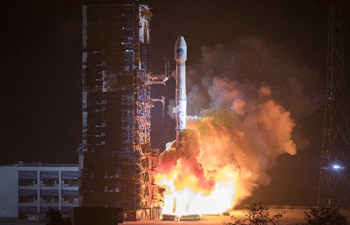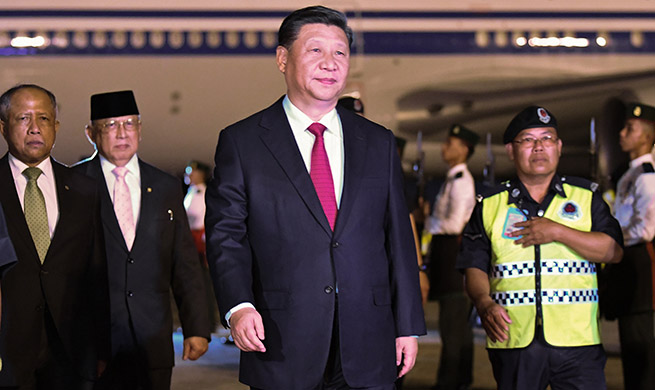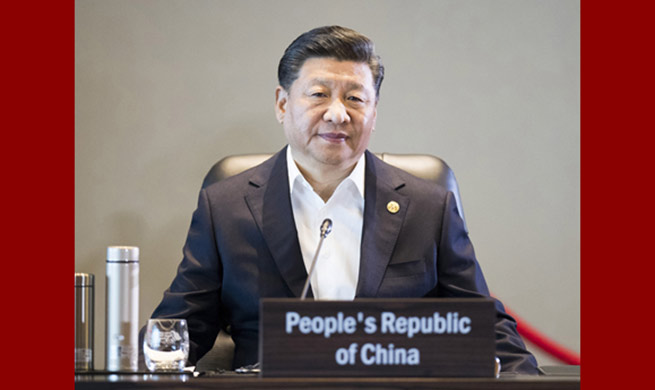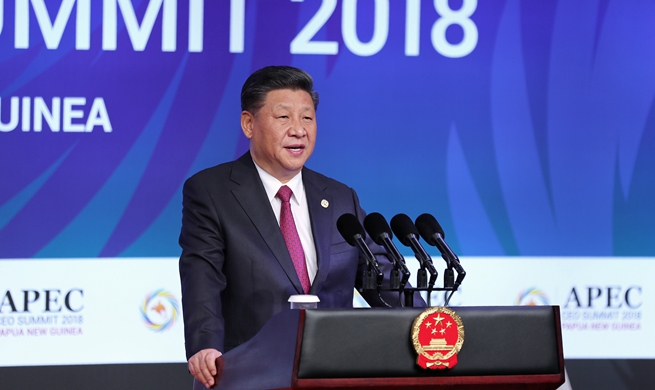NAIROBI, Nov 19 (Xinhua) -- Agricultural transformation in Africa to help address the continent's endemic hunger and malnutrition crisis is dependent on policy reforms to spur investment and technology adoption in the sector, experts said at a forum in Nairobi on Monday.
Agnes Kalibata, the president of Nairobi-based Alliance for Green Revolution in Africa (AGRA), said the world's second largest continent has the capacity to feed its rapidly growing population subject to an overhaul of farming systems to make them more climate resilient and technology driven.
"We must unlock the potential of agriculture sector in Africa by addressing policy and financing gaps that have hampered its growth. Attracting investments in African agriculture is key to feed a rapidly urbanizing continent," said Kalibata.
She made the remarks at the inaugural future of food summit organized by Kenya's ministry of agriculture and the country's investors lobby to discuss innovation strategies to realize the country's food security agenda.
The two-day summit that is being attended by policymakers, industry executives, researchers and representatives of farmers aims to strengthen government and private sector linkages to revitalize food production in Kenya and the region.
Kalibata said achieving food and nutrition security in Africa hinges on reforming existing policies to ensure farmers have access to high yielding seeds, weather information, storage facilities and markets.
"The food security situation in Africa can be improved if farmers are availed with drought tolerant seeds and fertilizers. The power of technology should be unlocked to boost agricultural productivity," said Kalibata.
Sub-Saharan Africa region has remained the most food insecure globally thanks to climatic shocks, population pressure, shrinking arable land, loss of soil nutrients and slow uptake of agricultural technologies.
Kalibata noted that progress that some African countries had earlier made in reducing hunger and malnutrition has been reversed due to policy disconnect, high cost of farm inputs, skills gap, low technology adoption and erratic rains linked to climate change.
She emphasized that robust intra-African trade in agricultural commodities will tackle poverty and food insecurity while stimulating growth of manufacturing sector in the continent.
Meanwhile, African countries should borrow a leaf from China to accelerate their agricultural transformation and realize an industrial take-off.
Kalibata said that China's lessons in eradicating poverty and hunger through mechanization of agriculture are an inspiration to Africa.
"We can learn some lessons from China to achieve food security. China has done a lot in terms of policies that work for smallholders and private sector investments in agricultural research," said Kalibata.
She noted that greater access to high yielding crop varieties has sustained food and nutrition security in China.













